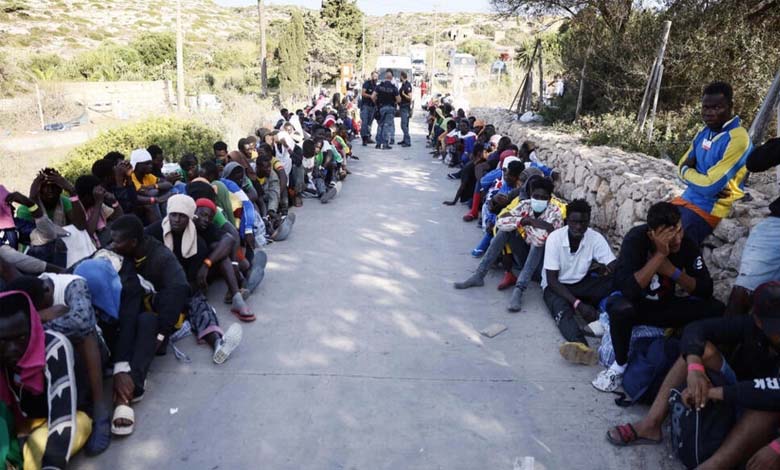Historic Agreement: The European Union reaches final formulation to address the sharp increase in refugees

The European Union has reached a historic agreement on how member states should deal with the sudden surge in the number of people seeking asylum due to war, natural disasters, or climate emergencies. The new rules will allow frontline countries to expedite asylum applications and swiftly relocate individuals to other European countries, preventing a repeat of the situation in 2015 when over a million refugees arrived in the European Union from Syria and beyond, with some countries accepting far more than others.
Signing of the Agreement
According to the American magazine “Newsweek,” the agreement was signed early yesterday, ending three years of disputes among member states ahead of the meeting of the 27 European Union leaders in Granada, Spain on Friday.
German Foreign Minister Annalena Baerbock tweeted previously: “It’s a joint step forward that solidarity among member states becomes mandatory in times of crisis.”
The magazine noted that the agreement was reached after Germany and Italy overcame the clash that summarized the different approaches of European governments in dealing with immigration.
Italy claimed that Germany “backed down” on a controversial paragraph that could have prevented Italian authorities from using emergency measures to deal with migrants rescued by non-governmental organizations. An Italian diplomat said, “This is a big result for us.”
However, Baerbock, in her writing on Twitter, stated that “the settlement took our proposals on humanity and the system into account.”
She continued, “We made sure not to undermine the minimum humanitarian standards, such as access to education and healthcare during the crisis because without humanity in the crisis, there is no system.”
Behind-the-Scenes of the Agreement
The American magazine explained that it is understood that Poland and Hungary voted against the agreement, while Austria, the Czech Republic, and Slovakia abstained from voting. The new law still needs approval from the European Parliament.
Fernando Grande-Marlaska Gómez, the acting Spanish Minister of Immigration, stated that the main goal of the agreement is to share the burden of migration across the entire European Union, with the ability for frontline countries to request solidarity measures and support from the European Union and its member states.
The magazine further noted that there will also be a quick registration process for asylum seekers in crisis situations, giving member states only four weeks to complete initial paperwork before requesting other countries to accommodate individuals.
Last week, European Commissioner for Home Affairs Ylva Johansson revealed that 250,000 people had arrived in the European Union this year through irregular migration, with nearly half of them in Italy.
The leaders of the European Union, including Dutch Prime Minister Mark Rutte and President of the European Commission Ursula von der Leyen, made every effort to ensure that the rest of the bloc demonstrated its solidarity with Rome.
Grande-Marlaska stated, “Today we have taken a big step forward on an issue that is crucial for the future of the European Union, and with today’s agreement, we are now in a better position to reach an agreement on the entire asylum and migration agreement with the European Parliament by the end of this semester.”
Spain had hoped to reach an agreement during the meeting of interior ministers in Brussels last Thursday, but Italy announced at the last minute that it would not support the agreement after two paragraphs were added to ease German concerns about human rights. Italy wanted a provision that would allow the minimum standards to be violated in detention centers in the event of an increase in the number of arrivals, which Germany objected to. Italy also criticized Germany for supporting non-governmental organizations in search and rescue operations in the Mediterranean Sea.












